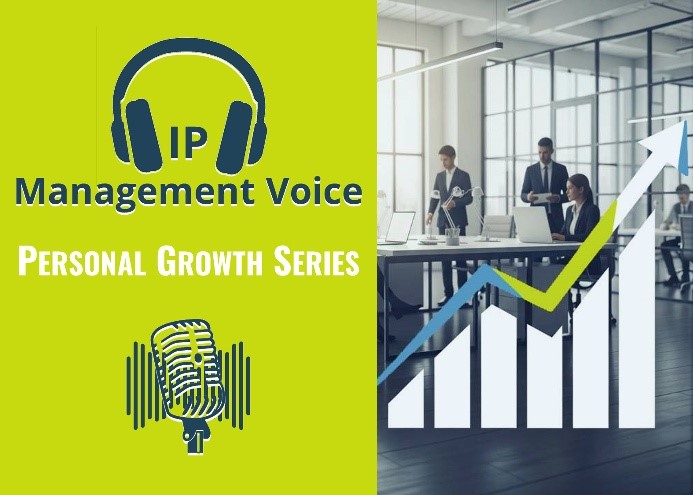Beyond Expertise: Why IP Professionals Must Embrace Business Development Today
Being highly skilled is no longer enough—IP professionals must also be visible, trusted, and strategically positioned. This post explains how business development helps patent attorneys and IP consultants build long-term client relationships, define their niche, and share their expertise effectively. With support from the dIPlex Resource Hub, IP experts can overcome time, skills, and visibility barriers to grow their practice and make their impact seen.
From Expert to Essential: Business Development for IP Professionals in the Innovation Economy
In a time when intellectual property is a cornerstone of economic growth, the role of the IP expert has evolved. Simply having deep legal and technical expertise is no longer enough. A recent podcast episode from the IP Business Academy highlights how business development is becoming a key professional skill for patent attorneys, IP consultants, and in-house IP counsels. The episode explains what business development truly means for IP experts, what it doesn’t mean, and how it can be implemented step by step—even by those with no sales background.
What Business Development Is—And What It Isn’t
For IP professionals, business development is not about pushing services or cold-selling legal advice. It’s not about advertising in the traditional sense or chasing leads with flashy campaigns. Business development in this context is about building long-term value through trust, visibility, and strategic alignment with client needs.
It involves:
- Identifying and refining a personal niche of expertise
Defining a clear niche helps you stand out in a crowded field and makes it easier for the right clients to find you. When you focus on a specific area, you become the go-to expert for precisely that challenge. - Communicating your unique value clearly and consistently
Clients need to understand not just what you do, but why you’re the right choice. A consistent message across your digital presence builds recognition and reinforces trust over time. - Forging strong, trust-based relationships with clients
Business development isn’t about one-time transactions—it’s about building long-term partnerships. Trust grows when you show genuine interest in your clients’ goals and consistently deliver relevant insights. - Positioning yourself as a thought leader and strategic advisor
Sharing your perspective through content, talks, or teaching helps others see you as more than a service provider. It positions you as someone who contributes to shaping the field and solving forward-looking challenges.
It’s a strategic, holistic approach—not a separate activity from your daily practice, but an extension of it.
Why Business Development Matters More Than Ever
Several powerful trends are driving the need for proactive business development among IP experts.
- First, the landscape is more competitive. Clients are increasingly knowledgeable, budget-conscious, and selective. They expect more than legal process management—they want strategic insight and partners who understand their broader business goals.
- Second, the digital shift has made your online presence a first point of contact. LinkedIn profiles, blog contributions, and Google results often shape that crucial first impression. Without visibility, even the most capable professionals risk going unnoticed.
- Third, IP professionals are increasingly expected to be educators and collaborators. Clients want someone who not only files patents but also explains the value of those patents in a commercial context.
Finally, business development adds resilience. It helps IP professionals move beyond unpredictable referral networks and build sustainable, scalable pipelines for growth.
The Core Elements of Business Development for IP Experts
The podcast outlines a structured model of business development tailored for professionals in IP law and strategy. This model consists of five essential pillars.
1 . Market Positioning and Specialization
IP experts who try to cover too much ground often get lost in the noise. The more specific your positioning, the more memorable and referable you become. Specialization doesn’t limit your career—it defines your signature value.
Ask yourself:
- What kinds of clients do I best serve?
- What industries or technologies do I understand deeply?
- What business problems am I especially good at solving?
The answers form the foundation of your market positioning. Clarity here informs everything else—from your messaging to your content strategy.
2 . Client Acquisition Through Proactive Outreach
Waiting for the right clients to find you is no longer a sustainable strategy. Proactive outreach means understanding who needs your services and building ways to connect with them—digitally and in person.
This doesn’t mean cold-calling. It means building relationships through thought leadership, LinkedIn engagement, webinars, and speaking opportunities. Being visible in the right places and demonstrating relevance is what makes you approachable.
3 . Service Differentiation and Personal Branding
It’s not enough to be good—you need to communicate why you’re the right choice. Differentiation involves translating your strengths into benefits clients actually care about. Personal branding amplifies this by giving you a clear, recognizable presence that builds trust over time.
Your personal brand comes to life through:
- LinkedIn profiles and activity
- Expert blog posts or articles
- Interviews, podcasts, or speaking engagements
These are not vanity metrics—they are the foundation of your authority in a crowded space.
4 . Strategic Partnerships
Working with complementary professionals, academic institutions, or industry associations helps you expand your reach and credibility. These partnerships create new opportunities and allow you to support innovation ecosystems more effectively.
For example, collaboration with a university’s R&D team or a tech accelerator program can position you as a go-to expert for early-stage innovation strategy.
5 . Thought Leadership and Content Creation
Sharing insights in accessible, meaningful ways is a central component of business development. It makes your thinking visible and helps potential clients understand how you approach problems.
You don’t have to publish weekly. Even one article or webinar per quarter can position you as someone who contributes value to your field. Focus on content that answers real client questions, explains current developments, or shares lessons from recent work.
Overcoming Common Business Development Barriers
While the strategic need for business development is clear, IP professionals often face real challenges when trying to implement it. The podcast addresses these head-on.
- Lack of Time
The billable hour model makes it difficult to prioritize non-billable activities. The key is to start small. Set aside just one hour a month to focus on visibility. Use voice notes to capture insights on the go. Repurpose internal presentations or client briefings into posts or articles. - Lack of Skills
Most IP professionals were trained in law, science, or engineering—not communication or branding. Business development often feels unfamiliar. But with structured support, you can learn to share your value effectively without feeling like a marketer. - Fear of Visibility
Many professionals are uncomfortable putting themselves out there. Fear of judgment, perfectionism, or ethical uncertainty can hold people back. The solution is to reframe visibility as service: you’re not promoting yourself, you’re making your insights more useful to a broader audience. - Ethical Concerns
Especially for lawyers, regulatory frameworks limit how services can be marketed. That’s why thought leadership is such a valuable strategy—it informs without selling and complies with professional standards. - Lack of Positioning Clarity
If your message is generic, it won’t connect. The IP Business Academy helps professionals define a niche and craft a communication strategy that feels both authentic and effective.
The Role of the IP Business Academy and the Resource Hub
To help IP professionals overcome these barriers, the IP Business Academy has developed a comprehensive program centered on its Intellectual Property Subject Matter Expert initiative. This program, along with the tools in the Resource Hub, provides step-by-step guidance on how to build and sustain business development efforts.
The Resource Hub offers:
- A full Growth Suite designed for business development in the IP field
- A self-assessment tool to help identify your current maturity level and areas of focus
- A practical email course that explains the different business development archetypes and how to align your style with your strategy
- Templates, checklists, and positioning aids to save time and boost effectiveness
You can explore the complete support here:
👉 https://profwurzer.com/resource-hub/
How the Subject Matter Expert Program Helps in Practice
The program supports IP experts through:
- Personal branding coaching: refining your message and positioning
- Content creation support: including co-authored posts, blog articles, and video formats
- Platform visibility: sharing your content with a wide and relevant audience
- Community connection: joining a trusted group of experts across industries and disciplines
- Speaking opportunities: from webinars to conferences and co-teaching roles
- Business development training: learning how to convert visibility into engagement and clients
The results are measurable. Participants report increased profile views, client inquiries, speaking invitations, and—most importantly—confidence in articulating their expertise to a wider audience.
Find here a explanation of the IP Subject Matter Expert program:
👉 https://profwurzer.com/systematic-growth-for-ip-experts-solving-the-innovation-market-gap/
The Bigger Picture: Visibility as Contribution
Business development is not just about personal gain. When IP experts communicate clearly and consistently, the public understanding of intellectual property deepens. Innovation becomes more accessible. Valuable ideas are more likely to be protected, shared, and scaled.
Business development is ultimately about impact—connecting your unique expertise with the people, companies, and challenges that need it most.
Taking the Next Step
If you’re an IP expert who wants to grow your influence, deepen your impact, and secure long-term professional success, business development is not optional. It’s a strategic necessity.
With the right tools, support, and mindset, you don’t need to become a marketer. You need to be visible, understandable, and trusted.
The IP Business Academy and its Resource Hub exist to make that transition possible—practically, ethically, and effectively. The first step is to clarify your niche. The next is to make that expertise visible.
Your knowledge already matters. Business development ensures it also gets seen, appreciated, and used where it counts.



